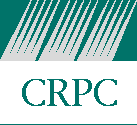Ken Kennedy (Project Director), Vikram Adve, Ruth Aydt, Rajesh Bordawekar, Alan Carle, Bryan Carpenter, Alok Choudhary, Keith Cooper, Ian Foster, Geoffrey Fox, Robert Fowler, Bill Gropp, Paul Havlak, Chuck Koelbel, David Kohr, Rakesh Krishnaiyer, Don Leskiw, Xiaming Li, Rusty Lusk, Nat McIntosh, John Mellor-Crummey, Paul Messina, Michael Paleczny, Dan Reed, Joel Saltz, Alan Sussman, Rajeev Thakur, Linda Torczon, Yuhong Wen, and Zhang Ying. |
||||||
| Abstract | Corporate Sponsors |
Major Accomplishments |
Projects & Software |
CRPC Research Home Page |
||
|---|---|---|---|---|---|---|
|
Abstract. The objective of the Fortran Parallel Programming Systems project is to make parallel computer systems usable for programmers who work in Fortran, a language used throughout the scientific and engineering community. In this effort, a special emphasis is placed on data-parallel programming and scalable parallelism through the use of advanced compilation strategies.Corporate Sponsors include HP-Convex, Schlumberger, and Texas Instruments. |
|
Major Accomplishments
|
|
Projects & Software See also Alphabetical Listing of All Projects & Software
|
| CRPC Research Home Page |
Alphabetical Listing of All Projects & Software |
CRPC Home Page |
|---|
